Customers want more than a quick fix. They want to feel like they matter as individuals, not just another number. However, many businesses treat customer interactions like simple transactions.
Successful businesses build strong relationships with their customers. They take the time to understand their needs and go the extra mile to make them happy. It might seem like extra work, but it pays off with loyal customers.
This guide will teach you how to transform customer interactions from basic transactions to lasting relationships. You'll learn simple strategies to personalize your approach, build a community around your brand, and make your customers feel like valued partners.
What Are Relational Customers?

Transactional customers make one-off purchases with your business. They have no real loyalty or emotional connection. They simply need something, you provide it, and that's it.
Relational customers, on the other hand, have an ongoing, sticky relationship with your brand. You've nurtured real familiarity, rapport, and trust over time through attentive, personalized experiences.
They see your business as more than just a vendor. You're a valued partner who truly understands their unique needs and circumstances. These relational customers stick around for a long time because you've formed a human bond.
Relational customers repeatedly buy from you, spend more, and enthusiastically promote you to friends and family.
The Costs of Not Shifting to Relational Service
While building strong relationships with your customers takes some initial effort, the consequences of not doing so are more severe.
For established businesses deeply rooted in outdated transactional processes and thinking, maintaining the status quo comes at a major opportunity cost.
Failure to prioritize personal connections over quick, impersonal transactions will increasingly hurt your bottom line:
1. Missing Out on Major Gains
Stats show that companies earning $1 billion annually can gain an average of $700 million within 3 years just by investing in exceptional customer experiences.
When you provide personalized, attentive experiences that make customers feel valued as individuals, they tend to become sticky, repeat buyers with much higher lifetime values.
Brand affinity deepens, price sensitivity decreases, and customers feel invested in your mutual success as partners. Loyal customers also become vocal advocates who drive significant new business through referrals.
2. Increased Customer Churn
On the flip side, the average cost of customers switching away due to poor service experiences is a staggering $1.6 trillion.
Simply put, transactional, one-size-fits-all customer interactions are a surefire way to hemorrhage loyalty, revenue, and market share.
When customers don't feel appreciated as individuals with unique needs, they become flight risks to competitors who make them feel truly valued.
3. Higher Service Costs
Studies show that in addition to increasing customer loyalty and retention, offering high-quality, individualized experiences can actually lower service costs by up to 33%.
The more you understand your customers' unique needs and journeys, the better you can predict and fix any problems they might have.
You’ll have easy-to-use self-help guides, personalized content, and automatic messages that talk directly to each customer's situation. Customers feel empowered to fix solutions independently, freeing reps to nurture relationships.
5 Strategies to Shift from Transactional to Relational

Treating customers like valued partners instead of one-off transactions requires adjusting how you think about and operate customer experience.
Here are five proven strategies to foster more personal, relational customer relationships:
1. Know Your Customers
You likely have a ton of data about your customers in your CRM and software tools, including their purchase history, communication preferences, service inquiries, and more.
Don't let all that valuable insight go to waste! Actually, use those customer details to personalize every interaction and make them feel truly known. 80% of customers are more likely to shop with a company that offers personalized experiences.
For example, you can insert personalized names and company details into your email marketing instead of generic greeting lines.
Your sales reps can also reference the specific products and issues a customer has discussed previously to continue building that familiarity.
Little personal touches tailored to each individual's circumstances go a long way.
2. Focus on the Entire Customer Journey
Too many companies focus on the initial purchase and immediate issue resolution when interacting with customers.
But relational means actively guiding and nurturing the relationship through each stage of the journey—not just checking transactional boxes.
You should check in regularly, share helpful content like webinars or guides, celebrate important milestones with customers, and consistently demonstrate that you care about their long-term success.
The attention doesn't stop once the sale is made or the ticket is closed.
Let’s look at examples of overlooked moments where you can nurture customer relationships:
- A customer’s achievements or anniversaries - Send a congratulatory email or offer a discount on their next purchase when a customer reaches a milestone, like completing a training course or exceeding usage goals.
- Customers who haven't interacted with your brand for a while - Re-engage inactive customers with personalized offers, relevant content based on their interests, or win-back campaigns to remind them of your value.
- Right after buying a new product or service - Send a personalized welcome email with setup guides, video tutorials, or offer a free consultation.
It sounds like a lot of work, but it doesn’t have to be with the right CRM. For example, tools like HubSpot Service Hub let you automate sending personalized emails to celebrate milestones or offer support at specific moments in the customer journey.

3. Create a Space for Your Customers to Connect
People crave connecting with their peers and getting advice from people other than your company's employees. That's why building a customer community can be powerful for cultivating relationships.
It provides a space for knowledge-sharing, ideating, networking, and bonding over common interests related to your products or industry.
You can facilitate this community through online forums, in-person meetups or events, exclusive online groups, and more.
Customers who feel part of an active community around your brand are much stickier and more invested as partners. They self-nurture those relational ties with each other and your company.
4. Listen Up! What Your Customers Say Matters
How can you provide personalized experiences if you don't understand each customer's constantly evolving needs and expectations? You should continuously capture their feedback.
This could mean surveys, interviews, website behavior tracking, social media listening, and other methods to collect both Solicited and unsolicited input.
Then it's about analyzing that data to drive improvements to your products, messaging, and customer journeys based on what customers hear directly.
Asking for feedback isn't just about you getting info on how customers feel. It also makes them feel like you listen and care. It's basically saying "your opinion matters!"
This can make them happy with your brand and less likely to leave. After all, feeling unappreciated is a top reason why people switch brands.
You can make this process easier by using a CRM like Service Hub. It lets you send surveys automatically based on specific events, like when a lead becomes a customer.

5. Train Your Team to Build Great Relationships
At the end of the day, you need to provide the appropriate training, resources, and incentives for your staff to become skilled relationship-builders — not just task-completers.
This involves developing soft skills like empathy, active listening, clear communication, and emotional intelligence.
You may need to adjust metrics and compensation beyond traditional measures like handle times and resolution rates. Evaluate customer satisfaction scores, effort metrics, and lifetime value impact to ensure employees are motivated to provide a personal, attentive experience.
The most important part? Engaging your employees by setting clear work expectations, fostering good relationships among coworkers, and providing the necessary tools for the job:
- Make customer experience everyone's priority. Get all departments invested in creating a great experience for customers.
- Hold employees accountable for good service. Set clear expectations for how everyone treats customers.
- Provide the training and tools needed to confidently deliver exceptional service.
Taking Customer Service to the Next Level
Customers have more choices now. They can take their business elsewhere if they don't feel genuinely understood, valued, and nurtured as a partner.
Transactional customer relationships built on quick, impersonal service won’t help you stand out. To transform your organization from a vendor into a trusted partner, you need hyper-personalized attention, proactive guidance, community building, and voice-of-customer insights.
The shift requires upfront effort, but the payoffs of fostering these meaningful relationships are huge — increased loyalty, higher lifetime value, a competitive edge, and a growing base of raving fans enthusiastically promoting your brand.
Partner with Origin 63 to Nurture Relational Customers
Are you ready to reap the benefits of relational customers but unsure where to start? Let HubSpot and Origin 63 be your guides.
HubSpot's cutting-edge solutions empower you to capture rich customer data, deliver hyper-personalized experiences across every touchpoint, nurture relationships throughout the journey, and extract powerful insights from your customer's voice.
Origin 63's experts will tailor and implement these tools to your unique business needs. From data/CRM integration to facilitating internal culture transformation, we'll ensure you have all the right pieces for fostering valuable relational partnerships.
Convert transactions into committed relationships by booking a consultation now.


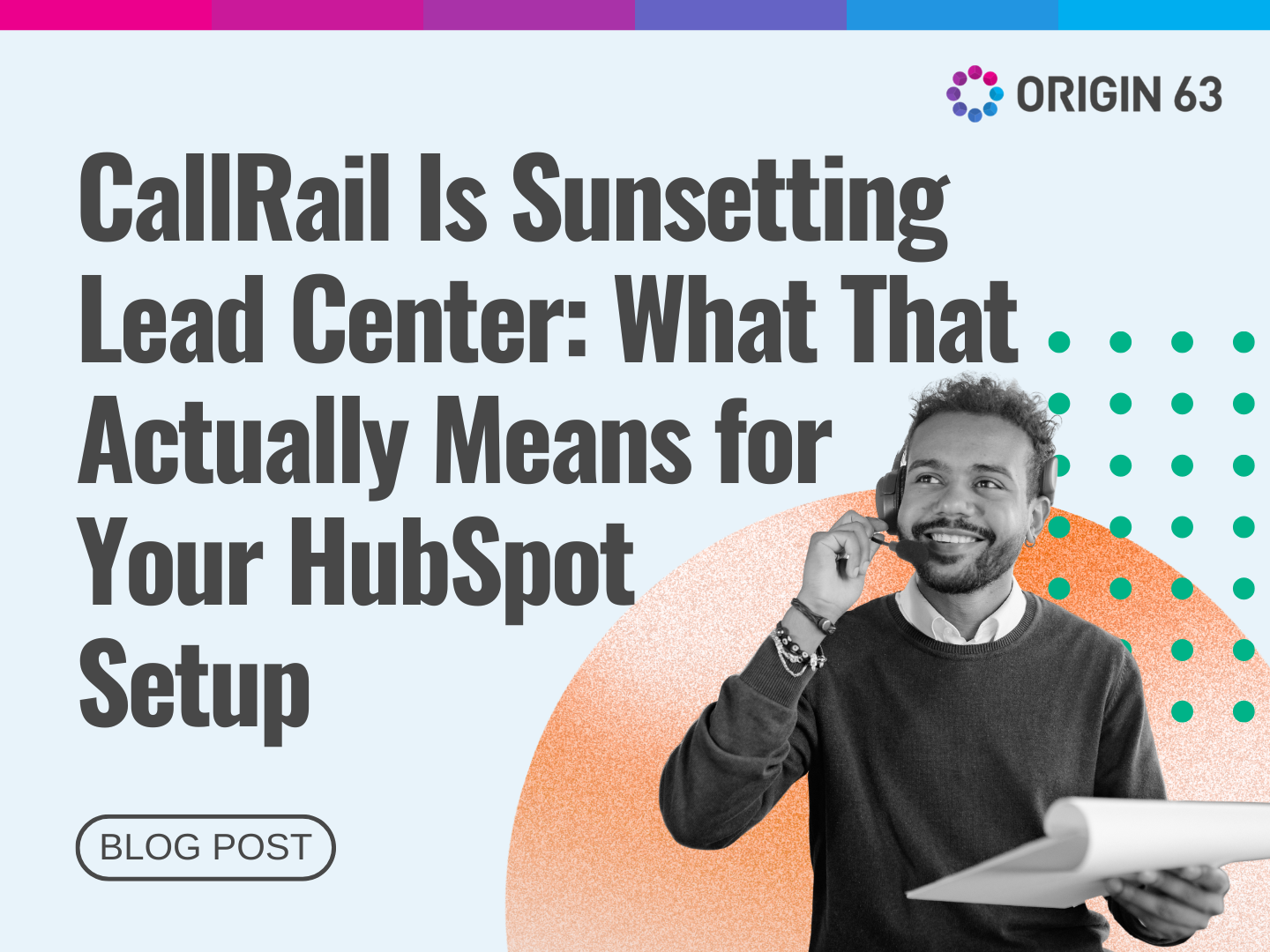
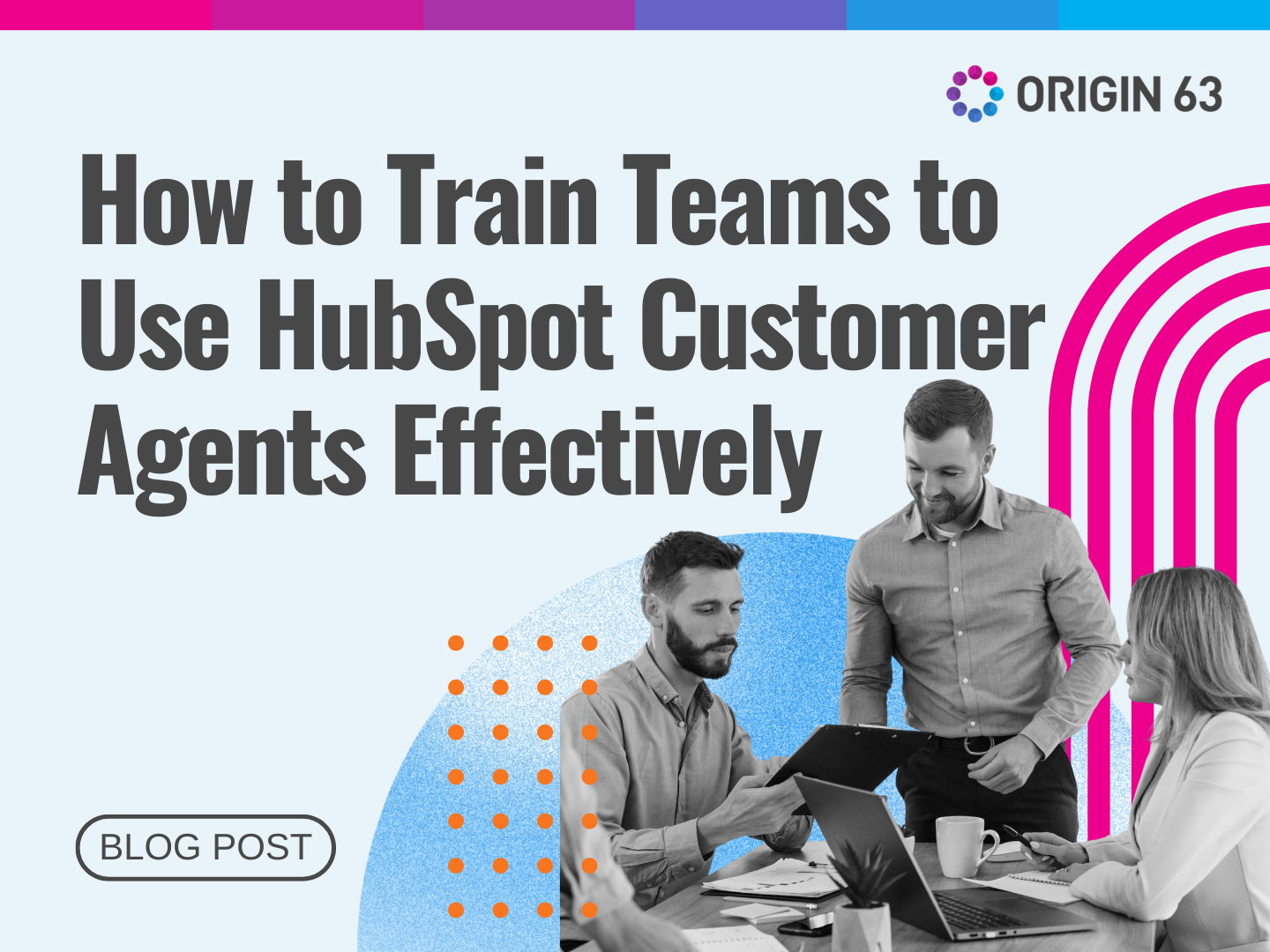
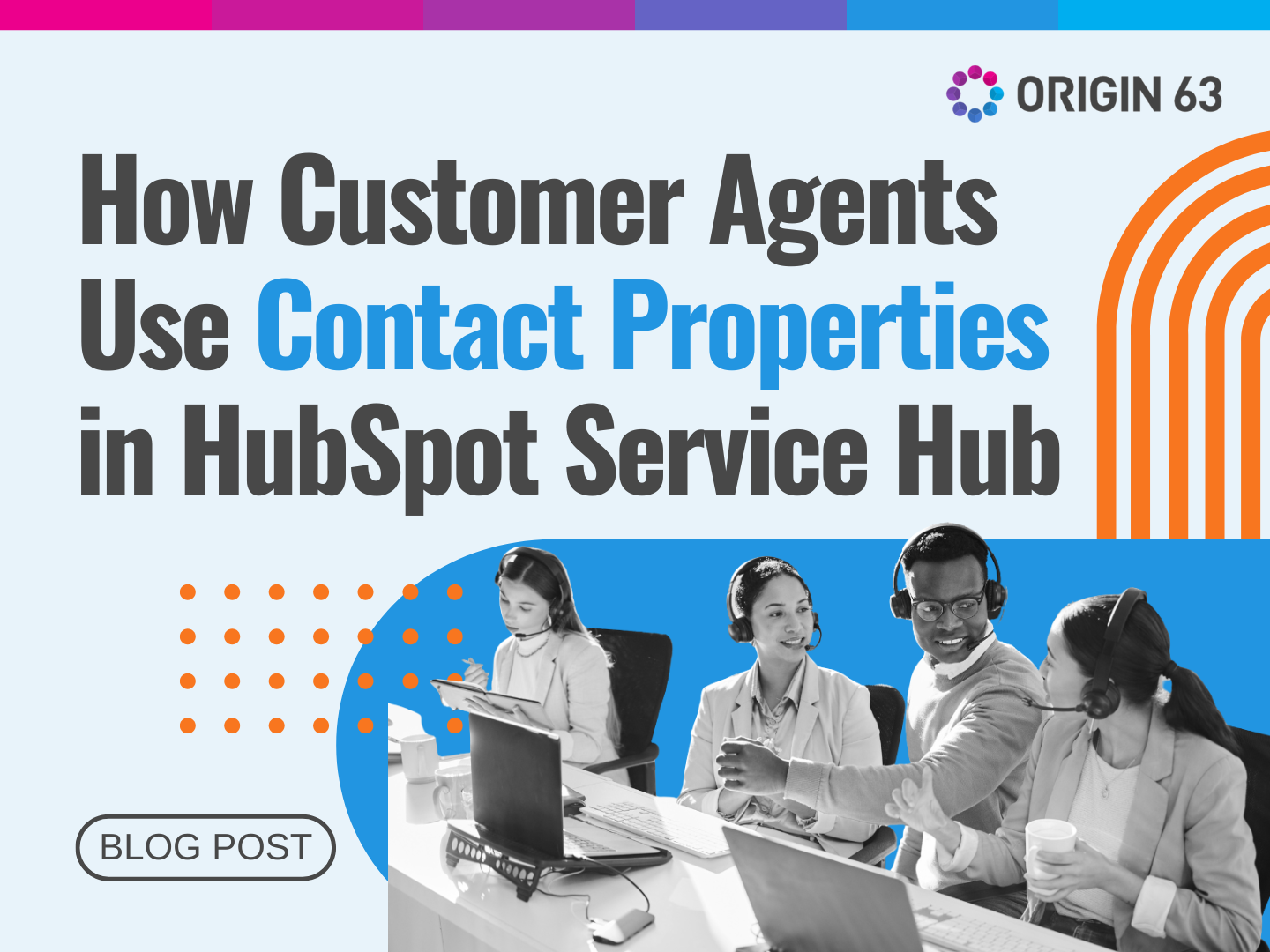
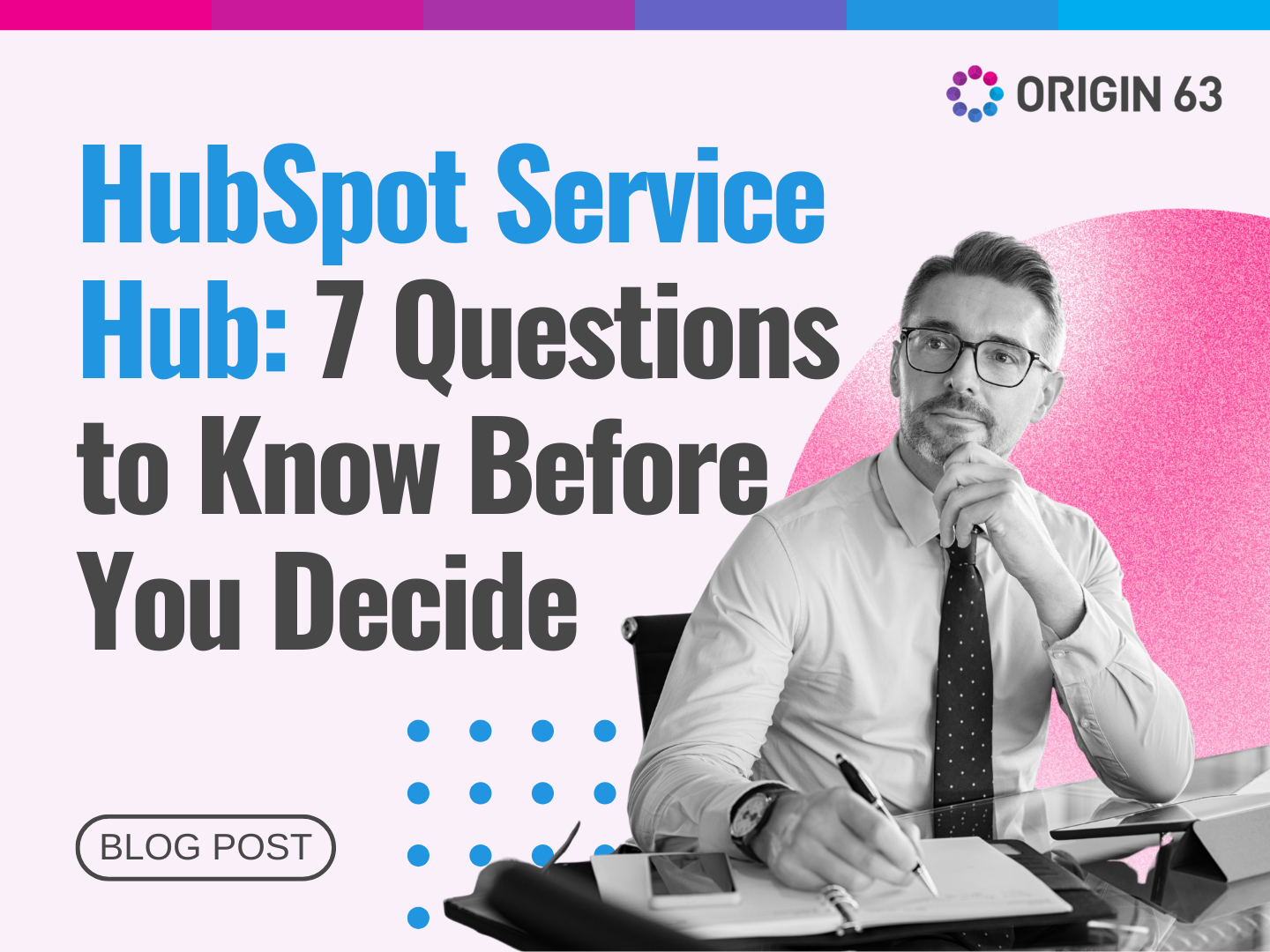
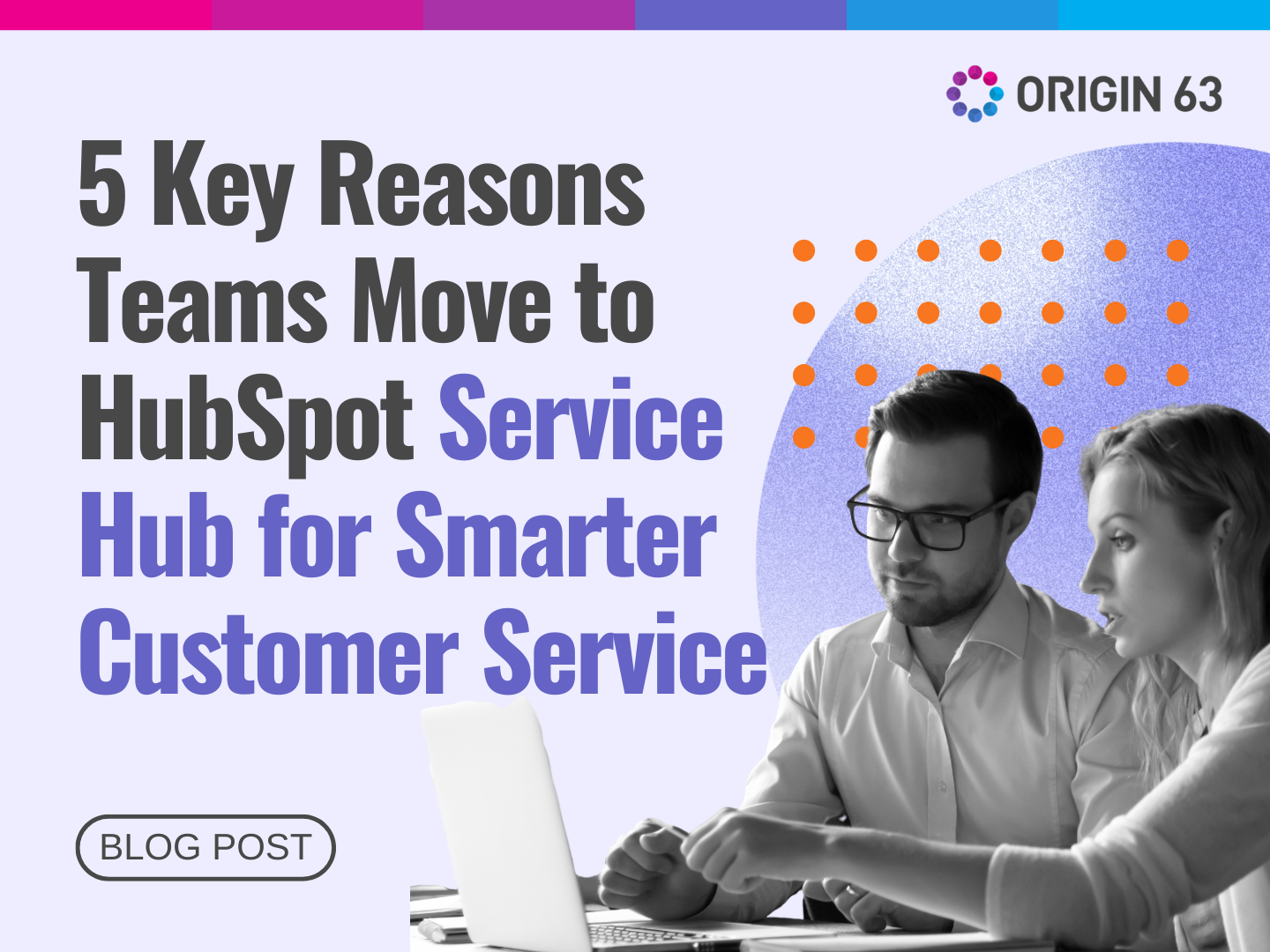






.png?width=90&height=90&name=Arrows%20Partner%20Badge-test%20(1).png)

